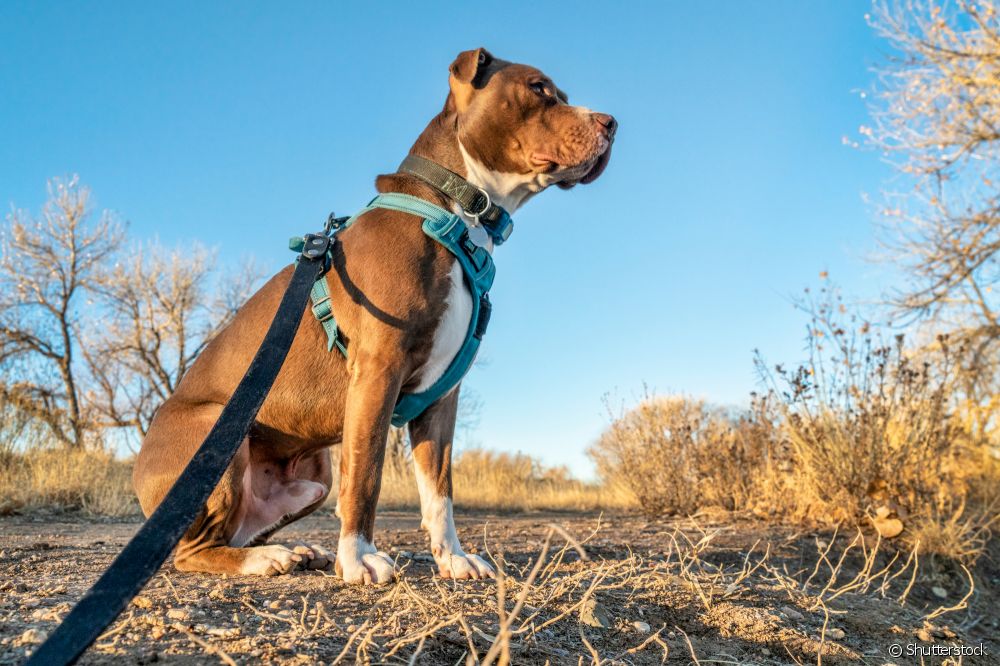What types of dog collars are best for large breeds?

Table of contents
The use of the dog collar is a fundamental item for safety during the walk. But there are so many options that it is normal for guardians to be confused about the benefits of each type. Before choosing the best dog collar it is important to analyze the behavior and even the size of your dog. If you have a large dog, the collar needs to be suitable for the size of the dog.But what should the guardian consider when buying the best dog collar for a large dog? We have gathered some important information to help you in this mission!
Large dog collar: size of the animal must be considered
Many people don't know, but there are some types of dog collars that are suitable for a specific size of animal. This is the case of the retractable leash which, despite being super comfortable and providing freedom for the furry ones, is only suitable for small dogs. It is important to follow this recommendation because larger dogs tend to force the collar and leash more, which increases the risk of injury.risk of the retractable guide breaking.
In the case of the hangman's collar, which is widely used by trainers, it is not indicated for use on walks, especially in large animals, which have more strength. Ideally, this accessory should be used as a teaching method and by a professional. The neck region has a number of important structures for animal health and the pulls caused by this type of collar can compromise them. exist.other training methods, which work on the animal's focus without compromising its health.
What is the best collar for large dogs?
When choosing a collar for a large dog, you need to take into account the comfort, safety, resistance and ergonomics of the pet. These factors contribute to a quality (for both the guardian and the dog) and safe walk.
Another important thing is to let the pet get used to the collar. A tip to help with adaptation is, before using it for a walk, let the dog walk around the house using the accessory. This way the guardian can observe if the animal is feeling any discomfort and if the accessory is attached correctly to the pet's body.

Pectoral collar is the most suitable for large dogs
The harness collar is suitable for dogs of all sizes, but it makes a difference when walking large dogs. This is because the model allows the tutor to control the dog without putting too much pressure on the neck area. When choosing the type of harness (which can also be found in models with different functionalities), it is important to analyze the general behavior of the dog.your doggy on the walk.
If your pet pulls the leash on the walk, it may be interesting to invest in an anti-pull dog harness. The difference to the traditional harness is that the anti-pull model has the carabiner positioned on the front, which allows the guardian to have more control: every time the dog tries to pull, the harness will automatically position it to the side, making him have to change the rhythm of the dog's walk.With time, the animal learns that it must walk close to the guardian and without pulling to continue with the walk.
Dog neck collars should only be used with obedient and calm animals
The traditional dog collar is easy to find in various sizes, colors, shapes and materials. The neck collar is more suitable for large dogs that are already used to walks and behave very well during walks. It is more basic and consequently offers less control of the guardian in case of pulling. Therefore, it is important to evaluate the dog's health.general behavior of the dog before choosing the ideal collar.
See_also: Names for cats: over 400 ideas for naming your pet!

